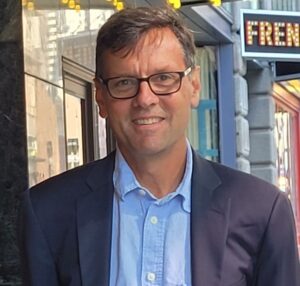At the last moment, Congress decided that compromising to ensure the country could keep the metaphorical lights on was better than no government at all. Congress doing a victory lap for successfully agreeing not to solve a problem for a month and a half is a bit like one of my students turning in a rough draft of a paper, begging for an extension on the final, and declaring themselves valedictorian. This latest agreement to put off agreeing comes on the heels of debt limit debates, past shutdowns, and threats, and of course, it means we’ll go through some version of it again for the rest of the month.
It is tempting to look at this reboot of a show no one liked the first time and roll our collective eyes, but that would be a mistake.
Political events don’t exist in isolation. The federal funding drama is happening at the same time that local election workers are leaving their jobs in droves, in part because of threats against them and unrelenting falsehoods about the 2020 election. Academics researching online mis- and disinformation are being harassed and threatened – sometimes by Members of Congress. Public health officials have been targeted by people who dislike their advice, driving many from the field. The former head of trust and safety at X (then Twitter) had to have armed guards and moved to protect his family. Threats against federal elected officials remain high.
Taken together, these and other events reflect and contribute to rapidly eroding trust in public institutions.
Trust is down and falling. According to the Pew Research Center, only about 15% of respondents say they trust the government in Washington to do what is right “most of the time,” and only about 1% say “just about always.” Gallup found only about one in four respondents have a “great deal” or “quite a lot” of confidence in the US Supreme Court, down ten points in two years. Fewer than one in five have those levels of confidence in newspapers. Eight percent have a great deal or quite a lot of confidence in Congress – and that was before the current standoff. The partisan divides in survey results tell an even bleaker story.
Much of the blame for the rise of threats and collapse of trust lies with those charged with making our democracy work. Candidates and elected officials routinely tell voters that they can’t trust the media, teachers, colleges, law enforcement, the courts, and even the Congress in which many of those politicians serve or hope to serve.
Our democracy only survives as long as we agree it does. As political philosopher, and one-time candidate for governor in Massachusetts, Danielle Allen told an interviewer, “…institutions of liberalism can function only if people are committed to their ongoing maintenance.” Trust is central to this maintenance. As Allen put it, “…the healthy functioning of the institutions of liberalism depends on both a willingness of participants to prove their trustworthiness to others and the capacity of a society to build and sustain trust among its members.” To be clear, Allen is referring to the political theory of liberalism on which our nation is premised, not a particular political point of view.
In isolation, the government budget drama is frustrating. Attacks on academics undermine research, make society more dangerous and less predictable, and, in some cases, put researchers’ lives at risk. Harassment of election officials makes elections harder to run and politics worse. And on down the line. Together, they add up to an assault on the political and social trust on which democracy depends.
Disagreements about how much taxpayer money to collect and spend, and from whom it should be collected, and on what it should be spent are important. Research should be rigorous and objective. Elections should be free and fair. Public health should be driven by science. But none of it matters if no one trusts the people and institutions doing the work.
We need a politics that builds trust, strengthens institutions, and moves us toward our shared democratic ideals. At the moment, we are moving in the wrong direction. It is up to all of us to rebuild trust and rebuild a politics that is pointed and passionate – and that works.
________________________________________________________________________________________________________







